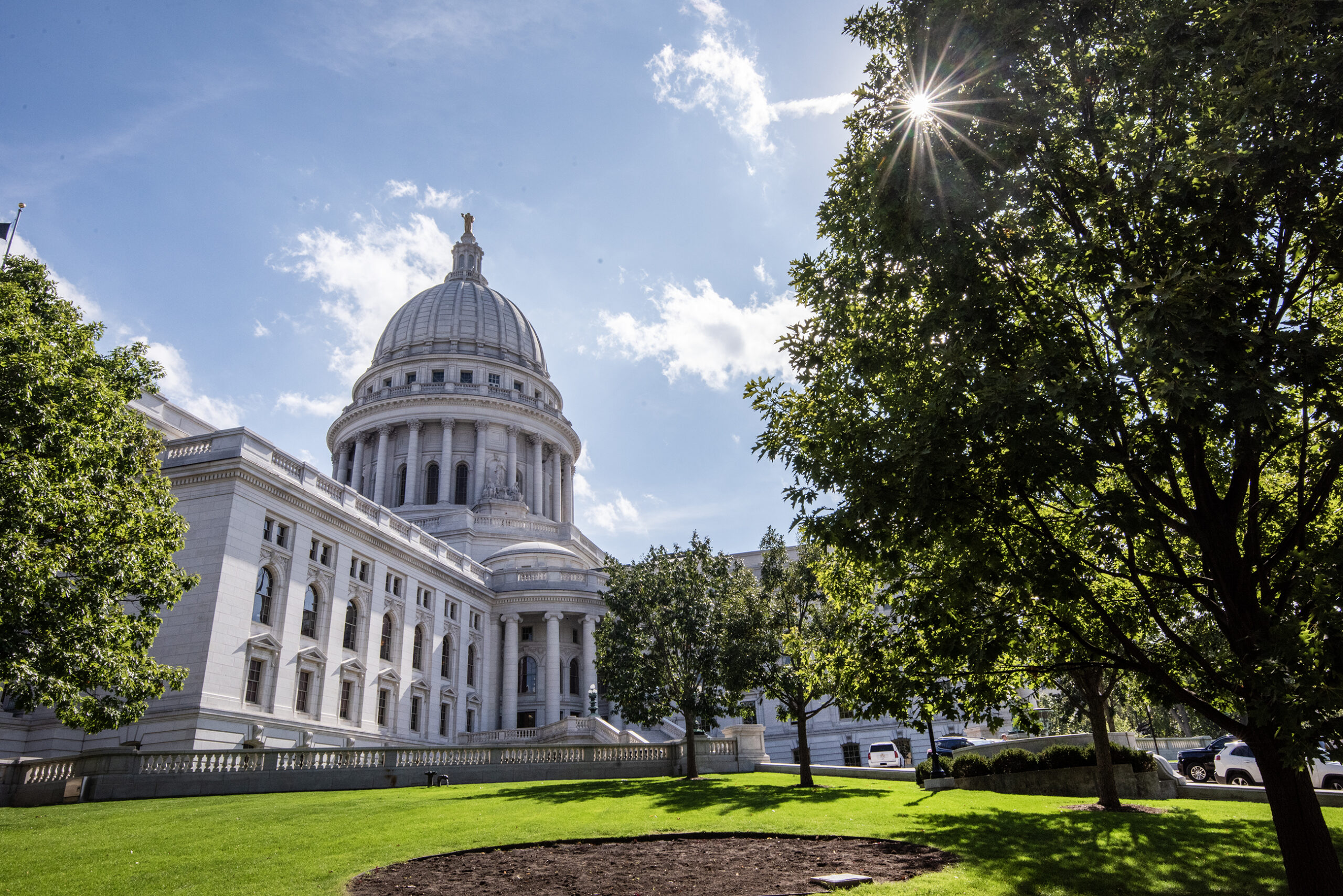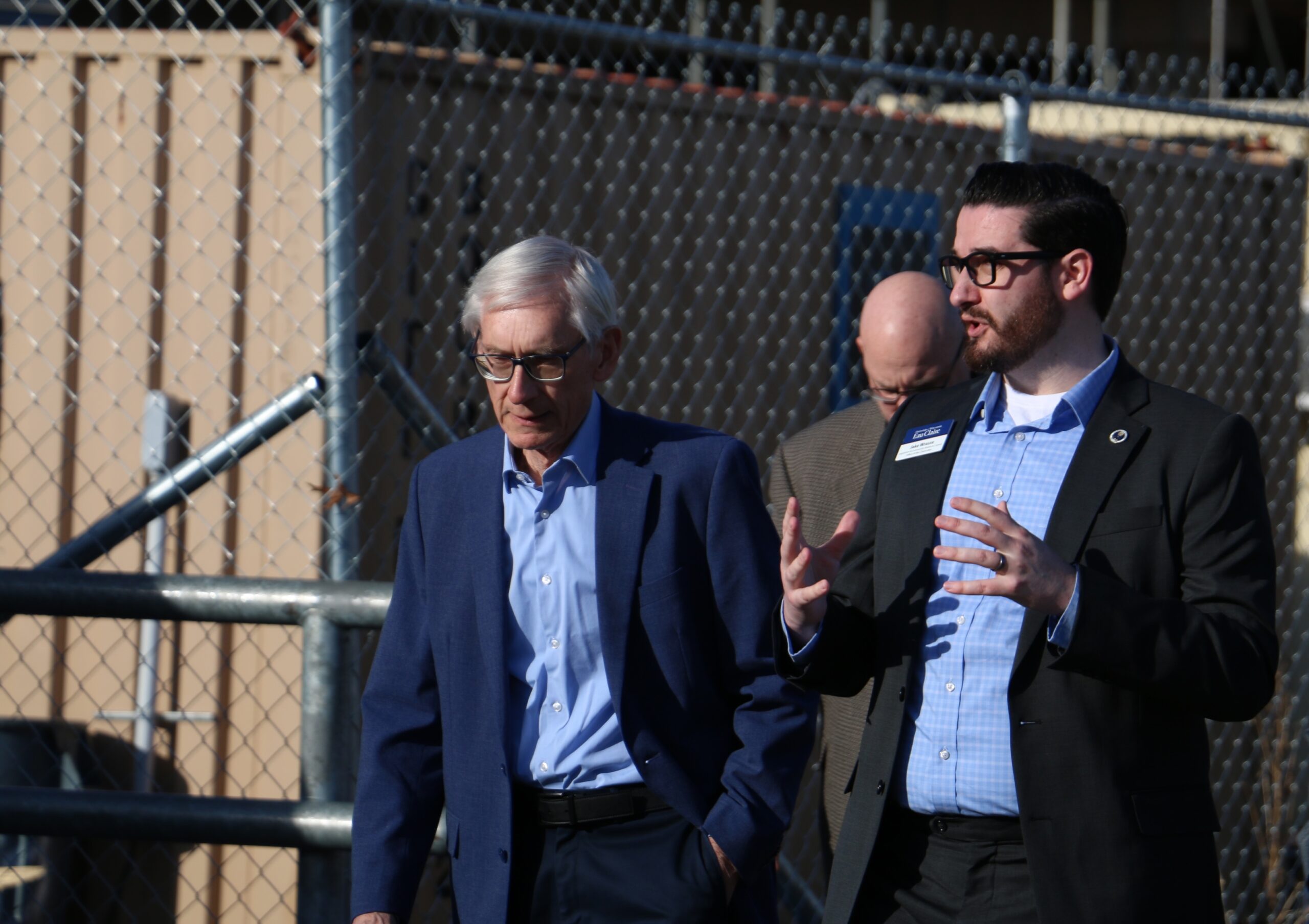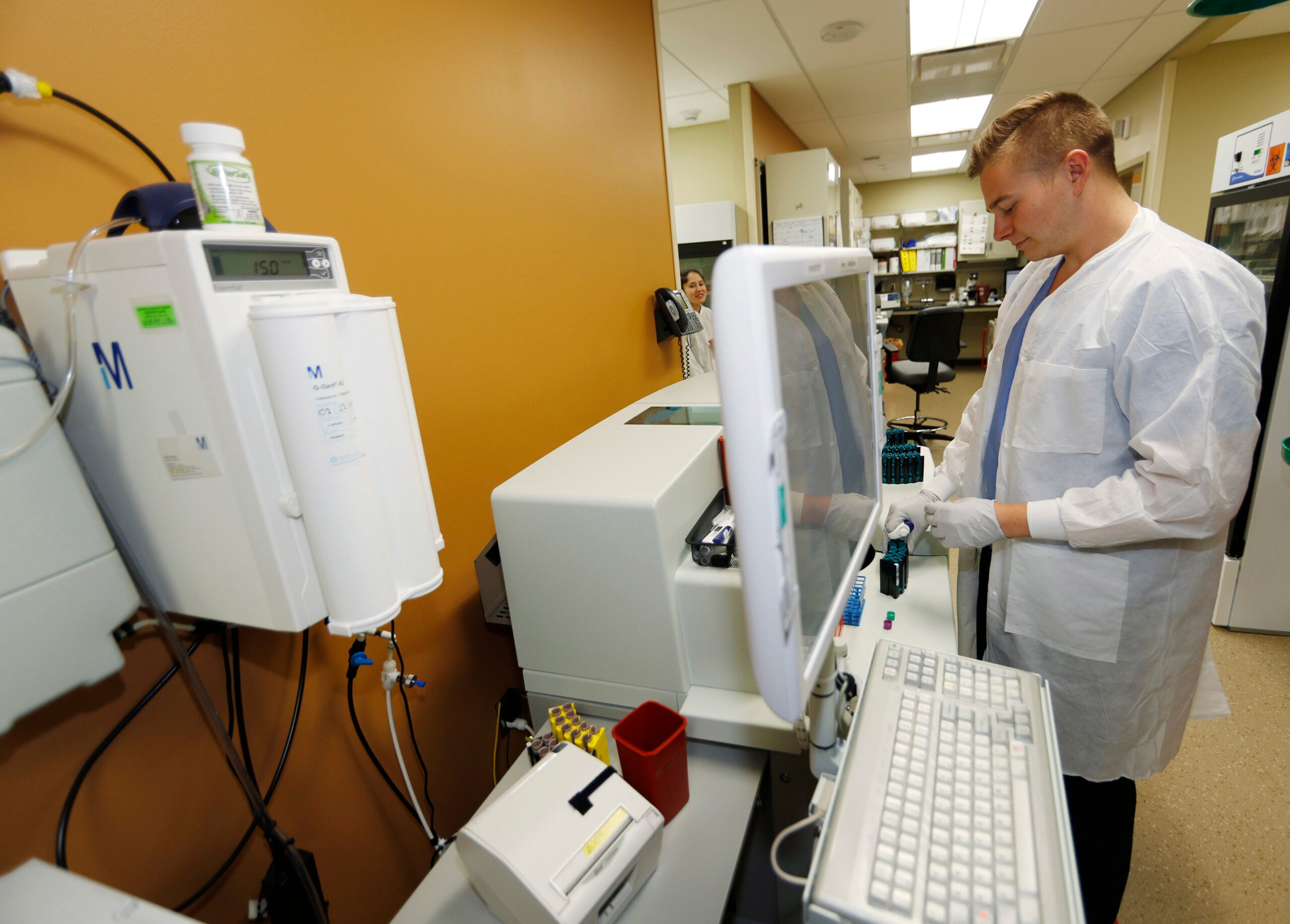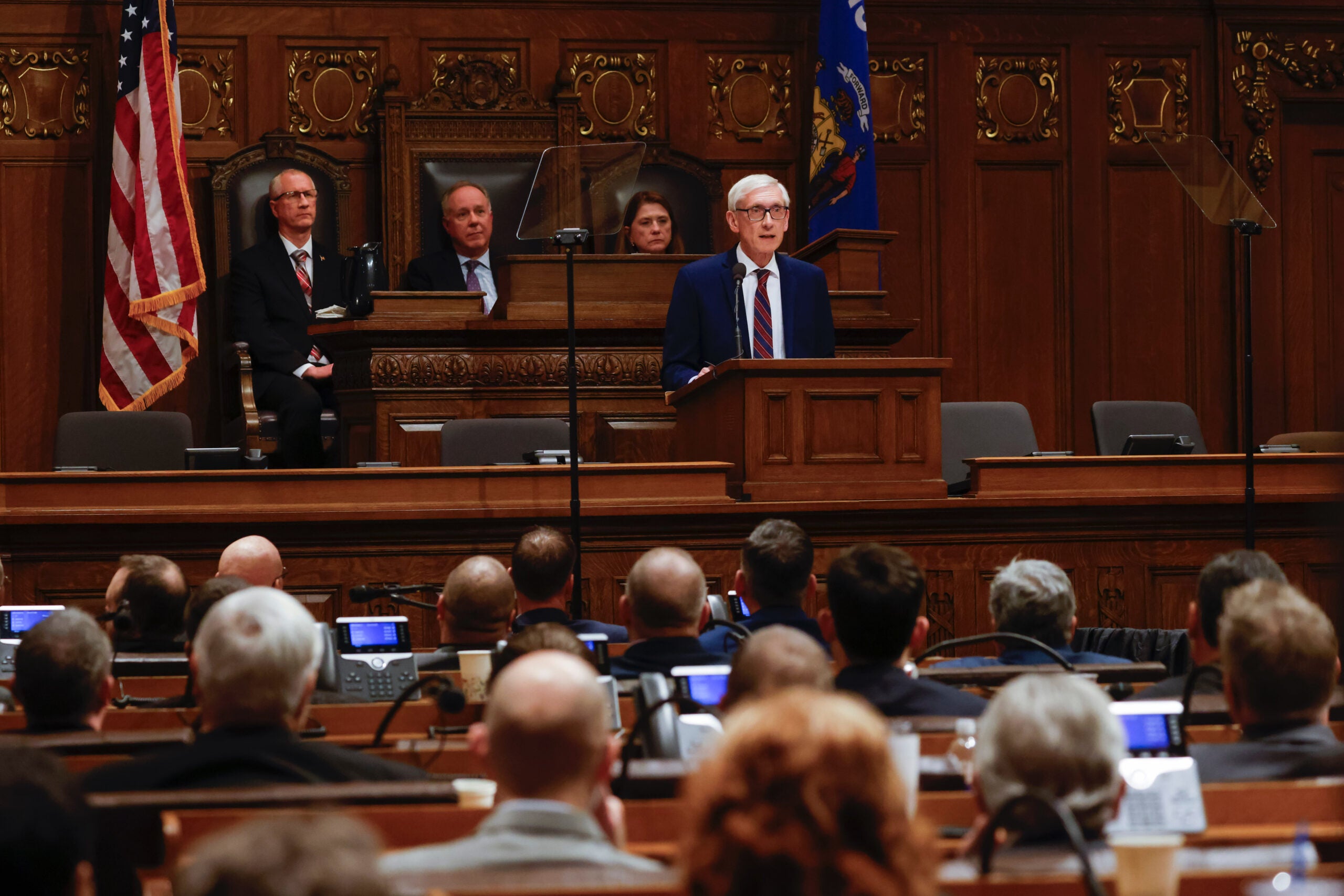Republican lawmakers challenged top members of Gov. Tony Evers’ cabinet to defend the governor’s budget Wednesday, sending strong signals that major pillars of the plan wouldn’t survive the Legislature.
Wednesday’s agency briefings in front of the powerful Joint Finance Committee covered schools, health care and roads — three of Evers’ top priorities when he campaigned for governor in 2018.
They also account for some of the largest spending increases in Evers’ budget proposal, driven in part by tax increases that Republicans say are non-starters.
Stay informed on the latest news
Sign up for WPR’s email newsletter.
“The governor is raising taxes at a time when taxes do not need to be raised,” said state Rep. John Nygren, R-Marinette, who co-chairs the Legislature’s budget committee. “I would say today is a ‘reset’ for the budget as proposed.”
Evers’ budget would scale back a tax credit for manufacturers and a tax break on capital gains for wealthier residents, moves that would generate roughly $1 billion for state government. It would also increase the gas tax.
Amid GOP pushback, Democrats argued the public supported Evers’ overall budget.
“I really would love you all to have an open mind,” said Rep. Chris Taylor, D-Madison. “This is a people’s budget. I’m sure you’re going to hear the people come out to support this budget.”
Road Funding Debate Continues
Evers’ budget would increase the gas tax by 9.6 cents per gallon in the upcoming budget and set the stage for automatic increases in the future through a return of Wisconsin’s gas tax indexing law.
The governor argues that he would offset that increase by eliminating Wisconsin’s “minimum markup” for fuel purchases. The minimum markup is a Depression-era law that prevents retailers from selling their product below cost.
Evers has said removing the minimum markup would decrease the cost of gas by 14 cents per gallon, but when pressed on that figure on Wednesday, Department of Transportation Secretary Craig Thompson told lawmakers any price drop would be hard to predict.
“I don’t know that the entire amount would come off,” Thompson said. “We’re not going to know until we see it play out in the marketplace.”
State Sen. Howard Marklein, R-Spring Green, who said during his own 2018 campaign that everything should be on the table when it comes to fixing roads, told Thompson that he was skeptical about ending the minimum markup.
“To use that minimum markup as a way to justify the gas tax increase — I guess I am uncomfortable with that,” Marklein said.
Sen. Tom Tiffany, R-Minocqua, criticized another Evers proposal that would raise fees on heavy trucks by 27 percent, generating about $36 million over the next two years.
“Why are you guys hammering heavy trucks?” asked Tiffany.
“This registration fee is a way to acknowledge that the heavier trucks have an impact on our roads,” Thompson responded, noting that heavy trucks cause significant wear and tear on Wisconsin highways.
The idea isn’t entirely new. Some Assembly Republicans proposed increasing fees for heavy trucks two years ago before they abandoned the idea. During those same budget negotiations, another group of Assembly Republicans proposed eliminating the minimum markup for gasoline purchases.
Education Spending Bump Gets Pushback
Evers’ budget would increase overall school funding by nearly $1.6 billion over the next two years, driven in large part by a roughly $600 million increase in special education funding.
Right now, the state picks up about 25 percent of eligible special education costs for districts. Evers’ budget would increase that to 60 percent.
Schools are required by law to fund the entire cost of special education, but a lack of new state funding devoted to special education has forced many districts to cut back elsewhere.
“It’s kind of robbing Peter to pay Paul,” said Department of Public Instruction Superintendent Carolyn Stanford.
But Nygren said there was no guarantee that schools would use this new funding for its intended purpose.
“Just because we put $600 million more in special education doesn’t mean that we’re going to see a $600 million increase in special education spending,” Nygren said.
Sen. Devin LeMahieu, R-Oostburg, questioned the overall size of the education budget.
“Does it make sense for us to earmark essentially 90 percent of our new tax revenue to one singular department in the budget?” LeMahieu asked.
“My answer would be ‘yes,’ because I’m an advocate for public schools and we have been underfunded,” Stanford responded. “At some point, we have to make the decision that we’re going to prioritize the education of our learners.”
Republicans also questioned Stanford at length about Evers’ plan to cap voucher school enrollment, a move they staunchly oppose.
Administration Argues For Medicaid Expansion
Republican lawmakers on the Legislature’s budget committee also used Wednesday’s hearing to continue their pushback on the Evers administration’s plans for health care.
During testimony by the Department of Health Services Secretary-appointee Andrea Palm, they questioned the administration’s plan to accept a federal expansion of Medicaid, a major tenet of Evers’ budget plan and a prominent theme of his campaign.
Republicans have long opposed accepting the Medicaid expansion, while Democrats have pushed for it.
Walker first rejected the federal expansion in 2014. That move has cost the state more than $1 billion, according to the Legislature’s budget office. But Republican lawmakers contend it would increase costs for patients who aren’t on Medicaid.
“We don’t want to build a system that has a lot of disparities,” said Rep. Amy Loudenbeck, R-Clinton. “That may have unintended consequences that may lead to people like me not being able to afford private insurance.”
According to the Kaiser Family Foundation, Wisconsin is one of 14 states that has not taken the additional federal money.
Under the governor’s budget proposal, Medicaid would be expanded to an estimated 82,000 residents and, with the federal support, free up $320 million in state money over the next two years.
Wisconsin’s Medicaid program, BadgerCare Plus, covers people who earn up to 100 percent of the federal poverty level, or about $12,500 per year.
By taking the full Medicaid expansion, that coverage would effectively be expanded to people who earn up to 138 percent of the federal poverty level, or about $17,200 per year.
Secretary-designee Palm has called the expansion the “anchor” of her department’s budget.
During testimony, she reiterated that point.
“We are very interested in stabilizing the folks between 100 and 138 (percent) of poverty who are just trying to make it paycheck to paycheck,” said Palm. “Access to health care would improve their ability to be successful and raise successful kids.”
Evers’ plan would also eliminate Walker-era requirements that require drug testing for Medicaid recipients. Republicans also expressed concern about that proposal.
“We should be testing people and getting them the treatment they need so they can be employed,” said Rep. Mike Rohrkaste, R-Neenah.
Other health care proposals from the governor include a plan to legalize medical marijuana, eliminate a waiting list for a program that serves children with disabilities, restore funding to Planned Parenthood, increase access to rural dental care and create a state office that would contract with foreign drug manufacturers to import generic prescription drugs to Wisconsin.
Agency briefings for the departments of workforce development, natural resources and corrections are scheduled for Thursday.
Wisconsin Public Radio, © Copyright 2025, Board of Regents of the University of Wisconsin System and Wisconsin Educational Communications Board.





